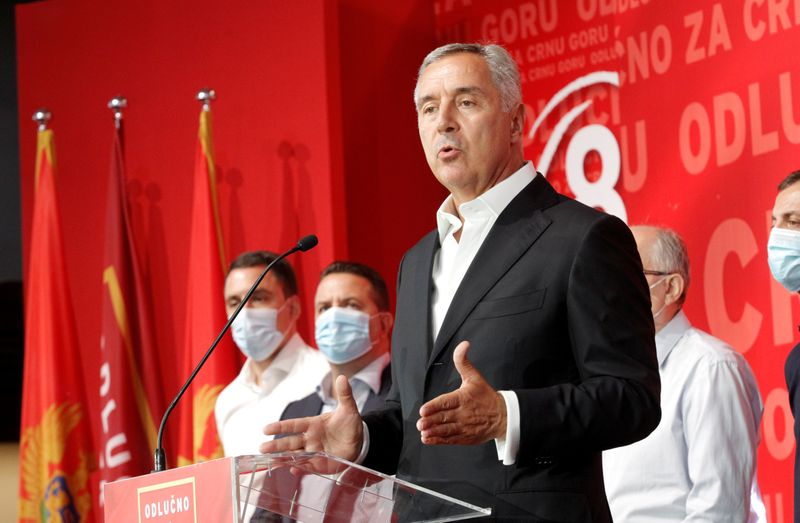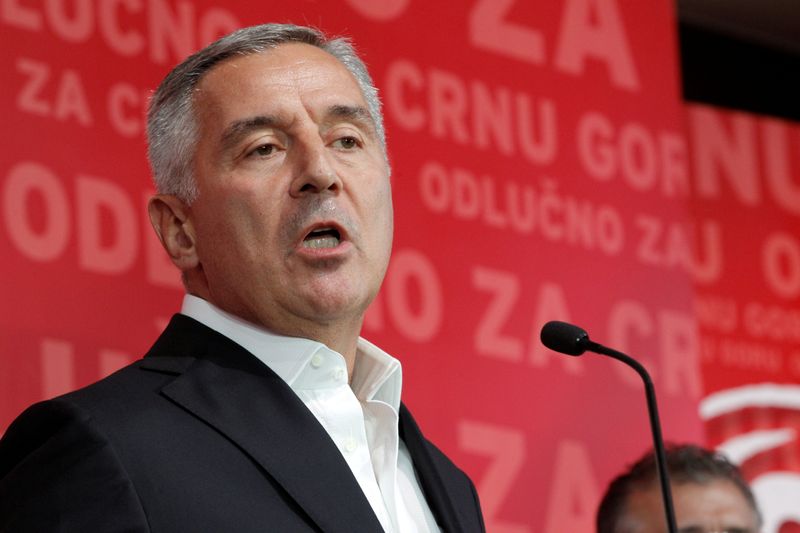PODGORICA (Reuters) – Montenegro’s president, Milo Djukanovic, says his pro-Western party is ready to go into opposition after three decades in power if three political alliances can form a coalition following their success in a parliamentary election.
In a transcript of an interview with Austria’s ORF TV, Djukanovic said the Democratic Party of Socialists (DPS) would accept that the three opposition alliances jointly secured a majority of 41 deputies in the tiny Balkan country’s 81-seat parliament on Sunday.
“We are ready to accept this election outcome (and) to be a responsible (and) the strongest opposition party,” Djukanovic said in the interview aired on Wednesday. A transcript of the interview was published on the presidential website on Thursday.
“We will see whether this … tripartite coalition … can really … form the government,” Djukanovic said.
The DPS and Djukanovic, steered Montenegro through the violent collapse of the former Yugoslavia in the 1990s, the dissolution of a state union with Serbia and accession to NATO.
Djukanovic faces re-election in 2023, but opposition leaders have urged him to resign before his mandate ends.
The three opposition alliances have said they are ready to form a government and that they would continue Montenegro’s bid to join the European Union. They would have three months to form a government after the creation of a new parliament.
The final preliminary vote count by the State Election Commission gave DPS 35.06% of the vote on Sunday. The final official result is expected in the coming days.
An alliance of Serb nationalist parties named For the Future of Montenegro, which wants closer ties with Serbia and Russia and is backed by the powerful Serbian Orthodox Church, won 32.55% of the vote.
A centre-right grouping, Peace is Our Nation, which is also opposed to Djukanovic’s DPS, secured 12.53%. Another alliance led by the green URA party won 5.53% of votes.
Opposition leaders, and democracy and human rights watchdogs, have long accused Djukanovic and his party of running Montenegro as their own corrupt fiefdom with links to organised crime. The DPS and Djukanovic deny the charges.
(Reporting by Aleksandar Vasovic; Editing by Timothy Heritage)























